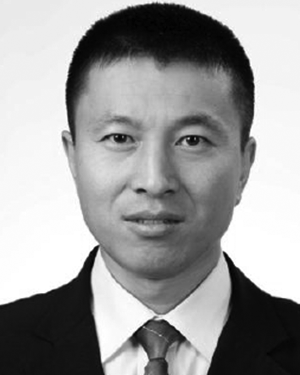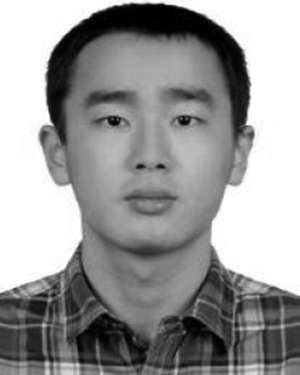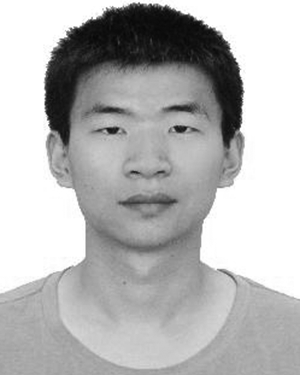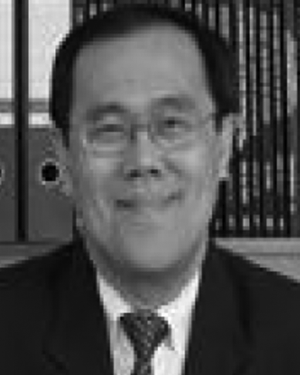Abstract:
The multi-inverter-based configuration is usually adopted in the renewable energy source grid-connected generation system (RES-GGS) to obtain a wide operational range and...Show MoreMetadata
Abstract:
The multi-inverter-based configuration is usually adopted in the renewable energy source grid-connected generation system (RES-GGS) to obtain a wide operational range and independent output power control of the renewable energy sources (RESs). The complicated configuration inevitably reduces the European efficiency. This paper proposes a multi-topology-mode inverter suitable for RES-GGS, which possesses five equivalent topology modes. When the output voltage and power of the RESs increase gradually, the system transforms its actual topology mode from the complicated ones to the simpler ones to increase the European efficiency. Furthermore, a system-level control strategy that can achieve the independent generation power control of each RES and the grid current closed-loop control is proposed. By online transforming the system among the five topology modes, the characteristics of wide operational range, independent output power control of each RES and high European efficiency are all achieved. The detailed experimental results verify the feasibility and advantages of the proposed multi-topology-mode grid-connected inverter.
Published in: IEEE Transactions on Power Electronics ( Volume: 32, Issue: 5, May 2017)
Funding Agency:

Department of Electrical Engineering, Harbin Institute of Technology, Harbin, China
School of Electrical and Electronic Engineering, Nanyang Technological University, Singapore, Singapore
Fengjiang Wu (M’15) received the B.S., M.S., and Ph.D. degrees
in electrical engineering from Harbin Institute of Technology (HIT), Harbin, China, in 2002, 2004, and 2007,
respectively.
Since 2007, he has been with the Department of Electrical Engineering, HIT, where he is currently an Associate
Professor. Since 2016, he has been with the School of Electrical and Electronic Engineering, Nanyang Technological
University...Show More
Fengjiang Wu (M’15) received the B.S., M.S., and Ph.D. degrees
in electrical engineering from Harbin Institute of Technology (HIT), Harbin, China, in 2002, 2004, and 2007,
respectively.
Since 2007, he has been with the Department of Electrical Engineering, HIT, where he is currently an Associate
Professor. Since 2016, he has been with the School of Electrical and Electronic Engineering, Nanyang Technological
University...View more

Department of Electrical Engineering, Harbin Institute of Technology, Harbin, China
Xiaoguang Li received the B.S. degree in electrical engineering, in
2015, from Harbin Institute of Technology, Harbin, China, where he is currently working toward the Ph.D. degree in
electrical engineering.
His current research interests include in the field of grid-connected inverters for renewable energy generation
system and microgrid.
Xiaoguang Li received the B.S. degree in electrical engineering, in
2015, from Harbin Institute of Technology, Harbin, China, where he is currently working toward the Ph.D. degree in
electrical engineering.
His current research interests include in the field of grid-connected inverters for renewable energy generation
system and microgrid.View more

School of Electrical and Electronic Engineering, Nanyang Technological University, Singapore, Singapore
Fan Feng received the B.S. and M. S. degrees in electrical
engineering from Harbin Institute of Technology, Harbin, China, in 2011 and 2015, respectively. He is currently
working toward the Ph.D. degree from the School of Electrical and Electronic Engineering, Nanyang Technological
University, Singapore, Singapore.
His current research interest includes the grid-connected inverter for renewable energy generation and mic...Show More
Fan Feng received the B.S. and M. S. degrees in electrical
engineering from Harbin Institute of Technology, Harbin, China, in 2011 and 2015, respectively. He is currently
working toward the Ph.D. degree from the School of Electrical and Electronic Engineering, Nanyang Technological
University, Singapore, Singapore.
His current research interest includes the grid-connected inverter for renewable energy generation and mic...View more

School of Electrical and Electronic Engineering, Nanyang Technological University, Singapore, Singapore
Hoay Beng Gooi (SM’95) received the B.S. degree in electrical
engineering from National Taiwan University, Taipei, Taiwan, in 1978, the M.S. degree in power engineering from the
University of New Brunswick, Fredericton, NB, Canada, in 1980, and the Ph.D. degree in power engineering from the Ohio
State University, Columbus, OH, USA, in 1983.
From 1983 to 1985, he was an Assistant Professor with the Department of Electric...Show More
Hoay Beng Gooi (SM’95) received the B.S. degree in electrical
engineering from National Taiwan University, Taipei, Taiwan, in 1978, the M.S. degree in power engineering from the
University of New Brunswick, Fredericton, NB, Canada, in 1980, and the Ph.D. degree in power engineering from the Ohio
State University, Columbus, OH, USA, in 1983.
From 1983 to 1985, he was an Assistant Professor with the Department of Electric...View more

Department of Electrical Engineering, Harbin Institute of Technology, Harbin, China
School of Electrical and Electronic Engineering, Nanyang Technological University, Singapore, Singapore
Fengjiang Wu (M’15) received the B.S., M.S., and Ph.D. degrees
in electrical engineering from Harbin Institute of Technology (HIT), Harbin, China, in 2002, 2004, and 2007,
respectively.
Since 2007, he has been with the Department of Electrical Engineering, HIT, where he is currently an Associate
Professor. Since 2016, he has been with the School of Electrical and Electronic Engineering, Nanyang Technological
University, Singapore, Singapore, as a Senior Research Fellow. His current research interests include the area of
renewable energy generation, microgrid, multilevel inverter technology, and electrical machines drive.
Fengjiang Wu (M’15) received the B.S., M.S., and Ph.D. degrees
in electrical engineering from Harbin Institute of Technology (HIT), Harbin, China, in 2002, 2004, and 2007,
respectively.
Since 2007, he has been with the Department of Electrical Engineering, HIT, where he is currently an Associate
Professor. Since 2016, he has been with the School of Electrical and Electronic Engineering, Nanyang Technological
University, Singapore, Singapore, as a Senior Research Fellow. His current research interests include the area of
renewable energy generation, microgrid, multilevel inverter technology, and electrical machines drive.View more

Department of Electrical Engineering, Harbin Institute of Technology, Harbin, China
Xiaoguang Li received the B.S. degree in electrical engineering, in
2015, from Harbin Institute of Technology, Harbin, China, where he is currently working toward the Ph.D. degree in
electrical engineering.
His current research interests include in the field of grid-connected inverters for renewable energy generation
system and microgrid.
Xiaoguang Li received the B.S. degree in electrical engineering, in
2015, from Harbin Institute of Technology, Harbin, China, where he is currently working toward the Ph.D. degree in
electrical engineering.
His current research interests include in the field of grid-connected inverters for renewable energy generation
system and microgrid.View more

School of Electrical and Electronic Engineering, Nanyang Technological University, Singapore, Singapore
Fan Feng received the B.S. and M. S. degrees in electrical
engineering from Harbin Institute of Technology, Harbin, China, in 2011 and 2015, respectively. He is currently
working toward the Ph.D. degree from the School of Electrical and Electronic Engineering, Nanyang Technological
University, Singapore, Singapore.
His current research interest includes the grid-connected inverter for renewable energy generation and microgrid.
Fan Feng received the B.S. and M. S. degrees in electrical
engineering from Harbin Institute of Technology, Harbin, China, in 2011 and 2015, respectively. He is currently
working toward the Ph.D. degree from the School of Electrical and Electronic Engineering, Nanyang Technological
University, Singapore, Singapore.
His current research interest includes the grid-connected inverter for renewable energy generation and microgrid.View more

School of Electrical and Electronic Engineering, Nanyang Technological University, Singapore, Singapore
Hoay Beng Gooi (SM’95) received the B.S. degree in electrical
engineering from National Taiwan University, Taipei, Taiwan, in 1978, the M.S. degree in power engineering from the
University of New Brunswick, Fredericton, NB, Canada, in 1980, and the Ph.D. degree in power engineering from the Ohio
State University, Columbus, OH, USA, in 1983.
From 1983 to 1985, he was an Assistant Professor with the Department of Electrical Engineering, Lafayette College,
Easton, PA, USA. From 1985 to 1991, he was a Senior Engineer with Empros (now Siemens), Minneapolis, MN, USA, where he
was responsible for the design and testing coordination of domestic and international energy management system
projects. In 1991, he joined the School of Electrical and Electronic Engineering, Nanyang Technological University,
Singapore, as a Senior Lecturer, where he has been an Associate Professor since 1999 and the Deputy Head of Power
Engineering Division from 2008 to 2014. His current research interests include microgrid energy management systems,
electricity markets, spinning reserve, energy storage, and renewable energy sources.
Hoay Beng Gooi (SM’95) received the B.S. degree in electrical
engineering from National Taiwan University, Taipei, Taiwan, in 1978, the M.S. degree in power engineering from the
University of New Brunswick, Fredericton, NB, Canada, in 1980, and the Ph.D. degree in power engineering from the Ohio
State University, Columbus, OH, USA, in 1983.
From 1983 to 1985, he was an Assistant Professor with the Department of Electrical Engineering, Lafayette College,
Easton, PA, USA. From 1985 to 1991, he was a Senior Engineer with Empros (now Siemens), Minneapolis, MN, USA, where he
was responsible for the design and testing coordination of domestic and international energy management system
projects. In 1991, he joined the School of Electrical and Electronic Engineering, Nanyang Technological University,
Singapore, as a Senior Lecturer, where he has been an Associate Professor since 1999 and the Deputy Head of Power
Engineering Division from 2008 to 2014. His current research interests include microgrid energy management systems,
electricity markets, spinning reserve, energy storage, and renewable energy sources.View more


